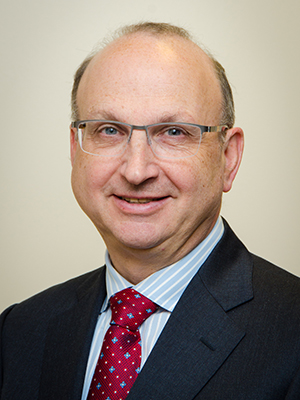Message from Norman Rosenblum, INMD Scientific Director
September 2023

The focus of my message this month is chronic kidney disease (CKD), a major health problem affecting approximately 4 million Canadians and 11% to 13% of the population globally. In 2020, kidney disease was the 11th leading cause of death in CanadaFootnote 1 and is projected to further rise in importance among the various global causes of deathFootnote 2. There is no cure for end-stage kidney disease and treatment options are limited to dialysis or kidney transplantation. Despite the contribution of dialysis and transplant, CKD is in great need of new modes of prevention and treatment.
In this context, I have been very pleased to witness the emergence of the Canadian Kidney Discoveries Network (CKD-N), a network of kidney investigators energetically seeking new pathways to define CKD pathogenesis, prevention, and treatment. Their efforts over the last several years have been founded on a grass-roots effort supported by the Kidney Foundation of Canada and applauded by CIHR-INMD. The work within CKD-N complements previous federal investments directed to support research on solid organ transplantation through the Canadian Donation and Transplant Research Program (CDTRP), diabetic kidney disease via the CIHR 100 Years of Insulin: Accelerating Canadian Discoveries to Defeat Diabetes initiative, and the Can-SOLVE CKD Network, which aims, among its broader set of goals, to eliminate disparities in access to diagnosis and treatment facing First Nations, Inuit, and Métis individuals.
The current and expected increased burden of disease for CKD deserves a renewed focus on its underlying mechanisms, prevention strategies and new therapeutics. New biomedical strategies must be conceived and implemented in the context of equitable and innovative social, environmental, and policy solutions, consistent with INMD’s Strategic Plan. INMD, along with partnering CIHR Institutes and stakeholders, will soon launch the Embracing Diversity to Achieve Precision and Increase Health Equity team grants. This new funding opportunity aims to develop precision medicine approaches and address the social determinants of health in diverse populations across numerous research areas, including CKD.
I applaud all of our colleagues and stakeholder organizations that are supporting this renewed push to mitigate the upward trajectory of CKD and, indeed, bend its prevalence curve in the downward direction.
Norman Rosenblum, MD, FRCPC, FCAHS
Scientific Director
Institute of Nutrition, Metabolism and Diabetes
- Date modified: